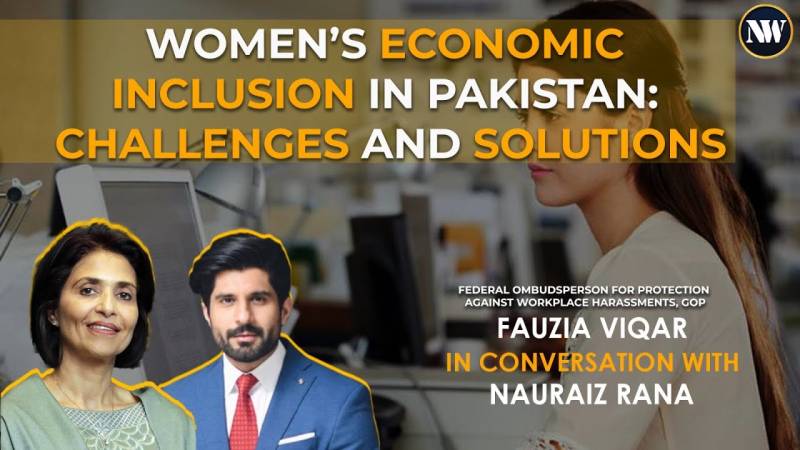Gender equality remains a critical challenge across the globe, and Pakistan is no exception. Despite the efforts of various stakeholders, including government bodies, non-governmental organizations, and international institutions, the country still lags behind in achieving gender parity. The 2023 Global Gender Gap Index ranks Pakistan 140th out of 146 countries, indicating significant disparities in areas such as education, economic participation, political representation, and health. This discussion delves into a recent interview with Fauzia Viqar, Pakistan's Federal Ombudsman for Protection against Women at the Workplace, highlighting the key challenges, progress, and opportunities in the journey towards gender equality.
One of the most significant barriers to gender equality in Pakistan lies in economic participation and opportunity. Women's labor force participation stands at just around 22%, with even lower rates in rural areas. Women in urban areas face challenges in accessing employment due to social norms, lack of mobility, and limited opportunities. The informal sector, which constitutes a significant portion of Pakistan's economy, often relegates women to low-paying and vulnerable jobs, perpetuating their economic marginalization.
The interview emphasizes the need for coordinated efforts between various policies, such as social protection programs and technical and vocational education. Integrating these programs can empower women by linking financial support to educational attainment and skill development, fostering economic independence.
While legislation alone cannot solve the gender equality challenge, it plays a crucial role in catalyzing social change. The interview highlights various legislative advancements in Pakistan, such as the provision requiring at least one woman on boards of directors and political parties fielding at least 5% of women candidates. These measures aim to increase women's representation and agency in decision-making processes.
However, implementation remains a significant hurdle. The lack of coordination and monitoring mechanisms has hindered the effective execution of these policies. The interview calls for a more strategic and proactive approach to ensure these legislative changes translate into meaningful progress.
Private sector organizations can play a pivotal role in advancing gender equality. The interview sheds light on supply-side and demand-side barriers that inhibit women's participation in the workforce. Women often face barriers such as lack of information, mobility challenges, and inadequate childcare facilities. On the demand side, some companies perceive women as more costly due to maternal benefits and childcare provisions.
To address these challenges, private sector organizations must prioritize gender-responsive human resource policies. Implementing measures like customized accounts for women, creating a more inclusive workplace, and providing maternity benefits can promote women's economic participation and empower them to take on leadership roles.
The digital space offers a promising avenue for enhancing women's economic participation, especially in urban areas. Women in Pakistan are utilizing digital platforms to promote products, access global markets, and network. The government's digital policies could be harnessed to create an environment conducive to women's entrepreneurship and economic empowerment.
Furthermore, focusing on STEM education (Science, Technology, Engineering, and Mathematics) can equip women with skills needed for the rapidly evolving job market. Bridging the gender gap in STEM enrollment can contribute to women's integration into higher-paying and more sophisticated sectors.
Despite the challenges, there is cause for optimism. Research indicates that greater gender equality can lead to increased returns on investment and improved corporate performance. Moreover, addressing gender gaps in Pakistan's economy could boost the country's GDP by up to 30%. These compelling incentives underscore the urgency of prioritizing gender equality as a national development goal.
To realize these gains, a multi-pronged approach is essential. Improving technical and vocational education, encouraging private sector engagement, and leveraging the digital space are crucial steps. However, the efforts must be underpinned by a robust implementation mechanism, which includes monitoring, evaluation, and coordination across various sectors.

